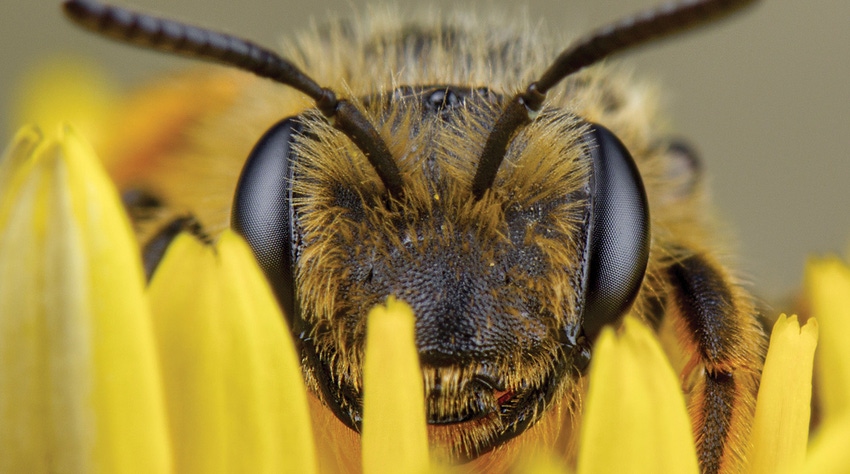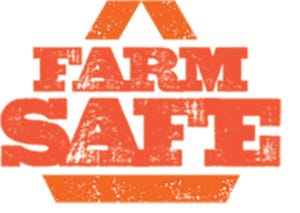
Final article in a series of four on farm safety.
Whether during harvest or the rest of the year, it's important to stay healthy in order to stay productive on your operation, according to Pam Robinson, safety and compliance manager at Agricenter International in Memphis, Tenn.
"That's something that we tend to not think about," she said. "We think about the timing. We think about the weather, but we don't necessarily think about ourselves and what our bodies can take and what they can't."
Robinson is the program director for Farm Safe, a free online safety program that has been developed at Agricenter to reduce the number of on-farm injuries.
 "You should always have situational awareness no matter where you are," Robinson said. "You don't want to be blindsided with something."
"You should always have situational awareness no matter where you are," Robinson said. "You don't want to be blindsided with something."
Situational awareness means not only thinking of safety precautions while interacting with tractors and equipment, but also being aware of your environment and the natural hazards that can shut your operation down.
"If you or your employees have to go into the hospital for back strain or zoonotic diseases or bites, then you're losing productivity time," she said. "You want to keep everybody healthy."
Animal bites, lifting injuries and exposure to cold and heat can affect productivity, so it's good to be mindful of what can occur, how to prevent mishaps and how to react to situations when they occur.
Work smart
"Ergonomics is a big part of it," she said. "You've heard the expression, 'Work smarter, not harder. There are so many opportunities where we think, 'I just need to reach in and grab this.' You end up straining your back or your shoulder."
Taking a few seconds to think about how to perform a task can eliminate the amount of stress placed on the body.
"Try to put the least amount of stress on your body as you possibly can because you can take that kind of injury with you for the rest of your life," she said. "You don’t want to be 20 years old, hurt your back and then carry it with you for another 50 years."
If you work on a large farm or in a small urban plot, simply working smarter can eliminate injury.
"You need to practice good, safe lifting techniques," Robinson said. "You need to use mechanical devices - if you've got them - to lift heavy things and to carry them. If you don't have that - if they're heavy or awkward, get someone to help you."
Stings and bites
Some hazards are easier to avoid than others, that includes animal bites or stings.
"If you are bitten or stung you need to keep it clean," she said. "You don't want to panic. If you know that you or one of your employees is allergic, you need to have the proper medicines on hand, like a EpiPen or whatever they need in case they have an allergic reaction."
Part 1: Safety program equips farmers with valuable tools
Part 2: Getting through harvest with a safety plan
Part 3: Equipment safety is key for keeping ag workers healthy
If in the middle of the field or out in the middle of the county, medical attention may not be available so it's necessary to be equipped in case of an emergency.
Poisonous snake bites require particular attention. Robinson stresses that keeping the wound clean is necessary to prevent infection. Never cut into a snake bite with the intention of letting the poison. This can cause more damage than just the snake bite alone.
Make sure the wound is as clean as possible, wrap it and get the snake bite victim to emergency care as quickly as possible.
The same is true for other animal bites, while not poisonous, bites from dogs or other domestic animals should be cleaned and checked out by medical professionals to prevent infection.
Zoonotic illnesses
Animal bites can also cause illnesses from diseases that are transferred to humans. These can be caused by viruses, bacteria, parasites, or fungi.
Illnesses of different types can range from mild to serious illness and can even result in death. Even healthy animals can transmit germs that can make people sick.
"It is vital to keep your animals up to date on their shots because protecting them protects you," Robinson said. "If they don't get the infection, they can't pass it along."
Bites are not the only cause of zoonotic illnesses. Those illnesses can be caused by direct or indirect contact with unvaccinated animals, bug bites, as well as food or waterborne contamination.
Heat and cold stress
"We all know about heat stress," she said. "This summer it was in the news a lot. But cold stress can be just as bad. People think about cold stress as being one of those things that happens way up north where they get all the snow."
She points out that it doesn't need to be freezing to get hypothermia. If you are wet and it is 40 degrees outside your body temperature could drop to dangerous levels, just as heavy activity on a hot day can cause you to overheat.
"Just watching those extremes is very important," she said. "We always have to look at the weather and make sure you know what you're walking into that day."
Farm Safe at FarmSafeEveryday.com has modules that specifically address bites and stings, heat and cold stress, as well as zoonotic illnesses. Many ergonomic issues are also addressed in modules on urban farming, manual harvesting and machinery operation.
"The Farm Safe program is an ongoing project," Robinson said. "We are building this library. There are so many hot topics that are important to people, important to farmers."
 Robinson and Agricenter intend to expand the library of modules to include health and safety topics that are important to the ag community.
Robinson and Agricenter intend to expand the library of modules to include health and safety topics that are important to the ag community.
About the Author(s)
You May Also Like






